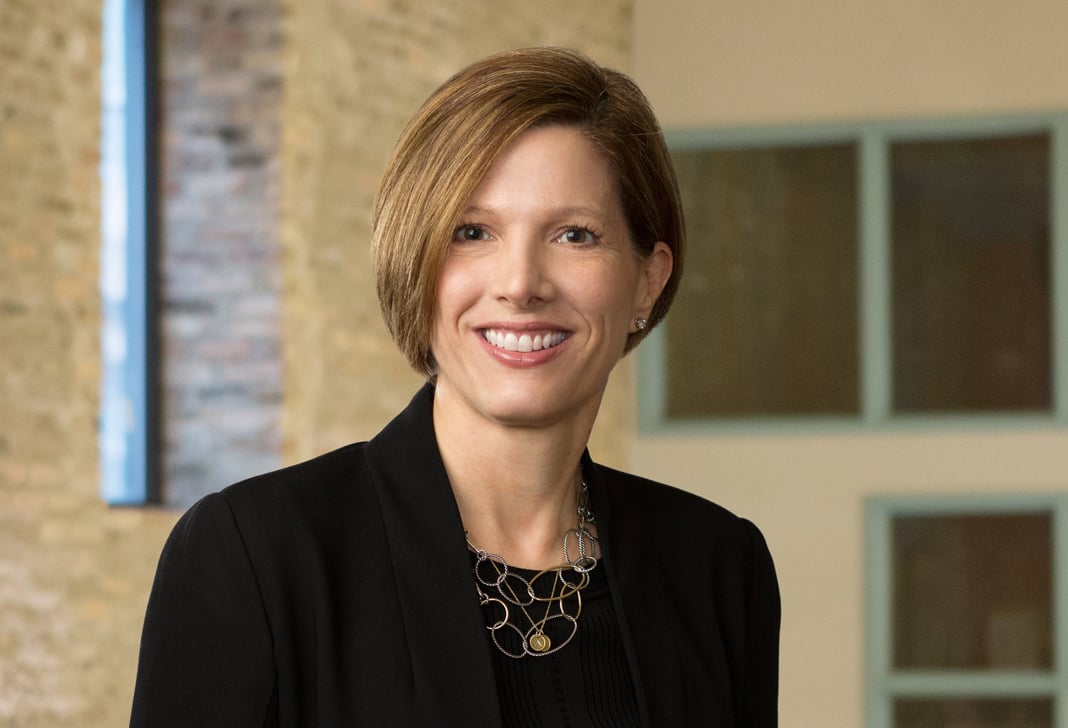
Physician-Owned Distributorships: Government Takes Action
On February 7, the Department of Justice filed an action in the Eastern District of Michigan seeking to enforce a Civil Investigative Demand (CID) issued in connection with an investigation of a neurosurgeon’s interest in a physician-owned distributorship (POD). This is the first public report related to a POD investigation and seems to indicate that the government is following through on its promise for heightened scrutiny of PODs.
Physician-Owned Distributorships
PODs are medical device companies or distributors in which physicians have an ownership or financial interest. In one common POD model, surgeons own or have a financial interest in a distributor that sells devices to hospitals for use in procedures performed by those surgeons. PODs claim that they are able to provide devices at below market costs by eliminating the need for sales representatives, facilitating the purchase of devices from smaller manufacturers, and increasing competition in the medical device market.[1] The proliferation of PODs in recent years has been met with increasing scrutiny, however, and critics claim that the physician-ownership structure creates a clear conflict of interest and incentives for surgeons to perform more procedures to drive the company’s sales.[2]
The government has for many years espoused a view that PODs are inherently suspect under the federal Anti-Kickback Statute, which prohibits both payment and receipt of any remuneration to induce referrals of items or services reimbursable under a federal health care program.[3] On March 26, 2013, the Department of Health and Human Services Office of Inspector General (OIG) issued a Special Fraud Alert noting that a physician’s financial interest in a POD could influence clinical decision-making and incentivize the physician to perform procedures that are not medically necessary to drive revenues. In the alert, the OIG raised particular concerns about potential financial incentives for implantable medical devices, which are typically considered “physician preference items,” meaning that physicians control or strongly influence the choice of brand and type of device used.
Implanted Spinal Devices
Regulators and legislators have recently focused their attention on PODs that market spinal devices. In October 2013, the OIG released a report in response to a congressional request to determine the extent to which PODs provide spinal devices to hospitals.[4] The OIG reported that in 2011, PODs supplied the devices used in nearly one of every five spinal fusion surgeries billed to Medicare. According to the OIG, when POD devices were used, although fewer devices were used in each surgery, there was no corresponding decrease in per surgery device costs when compared to surgeries involving non-POD devices.[5] In addition, the OIG reported that surgeons performed more spinal surgeries at hospitals that purchased from PODs, and the rates of spinal surgeries at those hospitals increased faster than the rate at hospitals overall. The OIG concluded that these factors, taken together, may increase the cost of spinal surgery to Medicare over time.
United States v. Sabit
The recently announced Justice Department’s investigation of Dr. Aria Sabit reportedly stems from his relationship with Apex Medical Technologies, LLC, a spinal device POD operated by Reliance Medical Systems. Dr. Sabit was one of Apex’s two founding physician-investors, having made his initial investment in May 2010. According to the government, Dr. Sabit failed to disclose to the California hospital where he practiced the profits he made as an investor in Apex. The government alleges that after this investment in Apex, the rate at which Dr. Sabit performed surgeries requiring implanted spinal devices increased dramatically.[6] The government also claims that in the fall of 2010, the relationship between Dr. Sabit and the California hospital began to deteriorate when hospital staff expressed concerns that Dr. Sabit’s infection and return-to-surgery rates were substantially higher than those of other surgical staff members.[7] The government reports that Dr. Sabit’s privileges were suspended, although this suspension was later lifted; and shortly thereafter, Dr. Sabit resigned and relocated to Michigan.[8] The government also provided information asserting that in September 2013, the California Board of Medicine filed a public accusation seeking the revocation of Dr. Sabit’s medical license based on gross negligence and dishonest and corrupt acts.[9]
The CID issued by the Justice Department seeks information relating to: (i) whether Reliance and its investors violated federal law by offering and/or paying kickbacks to physicians to induce them to use Reliance medical devices, and (ii) whether Reliance physician-investors performed spinal fusion procedures that were not medically necessary. Specifically, the CID seeks documents reflecting communications between Dr. Sabit and Reliance, copies of medical records for patients on whom Dr. Sabit used Reliance devices, and documents in Dr. Sabit’s possession concerning the Medical Board of California’s investigation. The government sought to enforce this CID in its action filed February 7, 2014.[10]
On February 25, 2014, Dr. Sabit filed a response to the government’s application for summary enforcement of the CID, in which he invoked his Fifth Amendment privilege against self-incrimination. In his response, Dr. Sabit argues there is a clear threat that the government will escalate its civil investigation to a criminal one.[11] Dr. Sabit asserts that as a result, under the “act of production” privilege of the Fifth Amendment, he may refuse to produce potentially self-incriminating documents unless the government can describe these documents with reasonable particularity.[12] The government’s CID, Dr. Sabit argues, fails to do so.
The government filed a reply brief on March 5, 2014, stating that the CID is narrowly tailored to develop evidence relevant to its investigation, and meets the requirements for reasonable particularity for each set of requested documents.[13] With respect to the communications between Dr. Sabit and Reliance, the government asserts that it has identified the email account from which Dr. Sabit sent and received the emails, and has demonstrated that responsive emails exist.[14] Further, the government points out that it can provide a list of the patients that Dr. Sabit treated using Reliance devices for purposes of identifying the requested medical records, and that Dr. Sabit has waived any privilege that may apply to these records by testifying to the same information in a deposition taken by the government.[15] Finally, the government notes that Dr. Sabit has already offered to provide the documents concerning the Medical Board of California’s investigation, and as a result there is no dispute as to their discoverability.[16]
On April 1, 2014, the court issued an order granting in part and denying in part the government’s motion to enforce its CID. The court denied the government’s request that Dr. Sabit produce email communications with Reliance, concluding that the government failed to identify the existence of such emails with reasonable particularity, and comparing the request to a “fishing expedition.”[17] In contrast, because the government knows of the existence and location of a letter sent from Reliance to Dr. Sabit terminating their relationship, the court ordered that Dr. Sabit be compelled to produce it.[18] The court also granted the government’s request to enforce the CID with respect to the medical records of patients treated with Reliance medical devices, noting that because the government can identify the names of such patients, production of these records would not be “testimonial” in nature.[19] Finally, the court ordered Dr. Sabit to produce documents reflecting communications with the Medical Board of California, concluding there is no question that the government knows such documents exist and are in Dr. Sabit’s possession.[20]
Conclusion
Although the government’s close scrutiny of PODs is well-documented in the alerts and reports it has issued, the action against Dr. Sabit is the first public action the Justice Department has taken against a physician involved with a POD. The court’s decision in the pending action as well as the Justice Department’s continued investigation of PODs and their physician-investors are of significance to physicians, hospitals and other health care entities who have relationships with PODs.
The medical necessity of procedures continues to be an area of focus for the Department of Justice, and will likely be a central question in any POD-related enforcement action. Stuart Delery, Assistant Attorney General for the Justice Department’s Civil Division, recently commented that “[p]roviders that bill for unnecessary services and drugs contribute to the soaring cost of health care.”[21] In addition, the media is drawing public attention to increasing rates of certain procedures, such as spinal surgeries, and questioning whether these procedures are medically necessary.[22]
Hospitals should take steps to ensure appropriate monitoring of their physicians’ practices, including investigating and addressing complaints or reports made regarding a physician’s practice patterns or standard of practice. By way of example, hospitals would be wise to ensure that they have appropriate policies and procedures in place to detect, review and address any outliers identified in physician and facility patient care or quality data, such as a physician performing a significantly higher volume of procedures, or repeated peer review actions or other questions or complaints relating to quality of care or physician qualifications. Hospitals should also review their conflict of interest policies to make sure existing policies would pick up any financial interest in a POD. Given that many PODs are now required to report publicly their physician ownership and investment interests under the Physician Payments Sunshine Act, hospitals may be able to use this information when reviewing responses to their own financial disclosure policies.
[1] See U.S. Department of Health and Human Services, Office of Inspector General, Spinal Devices Supplied By Physician-Owned Distributors: Overview of Prevalence and Use, OEI-01-00660 (Oct. 2013).
[2] Minority Staff of S. Fin. Comm., 112th Cong., Physician Owned Distributors (PODs): An Overview of Key Issues and Potential Areas for Congressional Oversight (Comm. Print 2011).
[3] See, e.g., Special Fraud Alert: Joint Venture Arrangements (Aug. 1989), reprinted at 59 Fed. Reg. 65372 (Dec. 19, 1994); Letter from Vicki Robinson, Chief, Industry Guidance Branch, Department of Health and Human Services, OIG, Response to Request for Guidance Regarding Certain Physician Investments in Medical Device Industries (Oct. 6, 2006); Minority Staff of S. Fin. Comm., supra note 2.
[4] U.S. Department of Health and Human Services, supra note 1.
[5] Specifically, the OIG noted that while surgeries that used POD devices implanted an average of 12.3 spinal devices per surgery compared to an average of 14.2 for surgeries not using POD devices, none of the six types of spinal devices studied was significantly less costly per unit when provided by PODs, and one type was significantly more costly when provided by PODs. Id. at 8-9.
[6] Application for Order to Show Cause for Summary Enforcement of Civil Investigative Demand 13-338 at 4, United States v. Sabit, No. 14-mc-50155 (E.D. Mich. Feb. 7, 2014).
[7] Id. at 5.
[8] John Carreyrou, California Board Moves to Discipline Surgeon in Federal Probe, Wall Street J., Sept. 17, 2013, available at http://online.wsj.com.
[9] Application, supra note 6, at 5.
[10] Id.
[11] Response to Application for Summary Enforcement of Civil Investigative Demand 13-338 at 5, United States v. Sabit, No. 14-mc-50155 (E.D. Mich. Feb. 25, 2014).
[12] Id. at 7.
13] United States’ Reply at 2, United States v. Sabit, No. 14-mc-50155 (E.D. Mich. Mar. 5, 2014).
[14] Id. at 3.
[15] Id. at 5.
[16] Id. at 6.
[17] Order Granting in Part and Denying in Part the Government’s Motion to Enforce Civil Investigative Demand at 8, United States v. Sabit, No. 14-mc-50155 (E.D. Mich. Apr. 1, 2014).
[18] Id. at 7.
[19] Id. at 8.
[20] Id. at 9.
[21] Press Release, Government Settles False Claims Act Allegations Against Florida-Based Baptist Health System for $2.5 Million, Department of Justice (May 6, 2014), available at http://www.justice.gov/opa/pr/2014/May/14-civ-476.html.
[22] Ben Eisler, Tapping into Controversial Back Surgeries, CBS News, Apr. 24, 2014, available at http://www.cbsnews.com/news/tapping-into-controversial-back-surgeries/.


